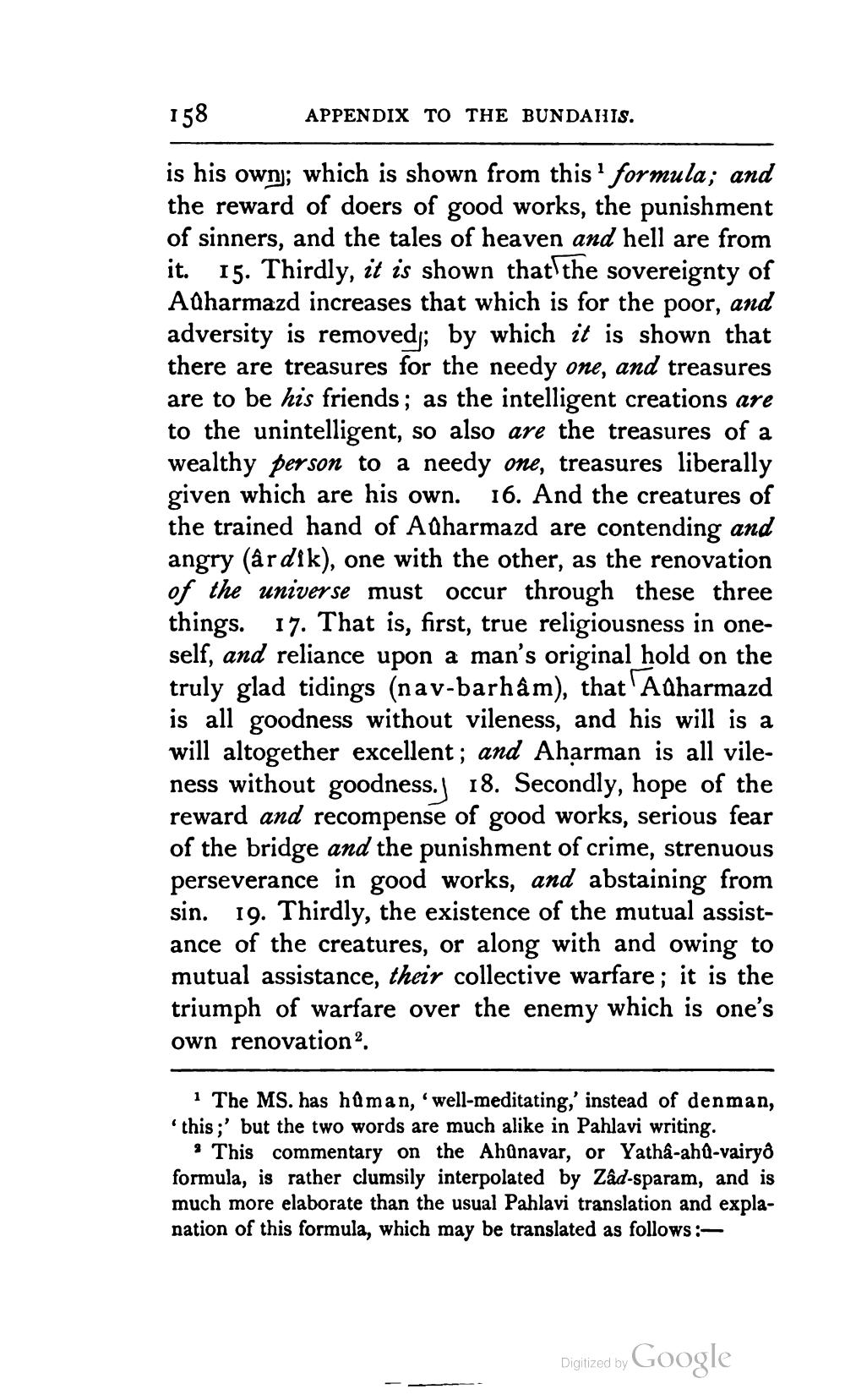________________
158
APPENDIX TO THE BUNDAHIS.
is his own); which is shown from this formula; and the reward of doers of good works, the punishment of sinners, and the tales of heaven and hell are from it. 15. Thirdly, it is shown that the sovereignty of Adharmazd increases that which is for the poor, and adversity is removedi; by which it is shown that there are treasures for the needy one, and treasures are to be his friends; as the intelligent creations are to the unintelligent, so also are the treasures of a wealthy person to a needy one, treasures liberally given which are his own. 16. And the creatures of the trained hand of Adharmazd are contending and angry (ârdik), one with the other, as the renovation of the universe must occur through these three things. 17. That is, first, true religiousness in oneself, and reliance upon a man's original hold on the truly glad tidings (nav-barhâm), that 'Adharmazd is all goodness without vileness, and his will is a will altogether excellent; and Aharman is all vileness without goodness. 18. Secondly, hope of the reward and recompense of good works, serious fear of the bridge and the punishment of crime, strenuous perseverance in good works, and abstaining from sin. 19. Thirdly, the existence of the mutual assistance of the creatures, or along with and owing to mutual assistance, their collective warfare; it is the triumph of warfare over the enemy which is one's own renovation?
The MS. has hûman, 'well-meditating,' instead of denman, this;' but the two words are much alike in Pahlavi writing.
? This commentary on the AhQnavar, or Yathâ-ahû-vairyð formula, is rather clumsily interpolated by Zad-sparam, and is much more elaborate than the usual Pahlavi translation and explanation of this formula, which may be translated as follows:
Digitized by Google




